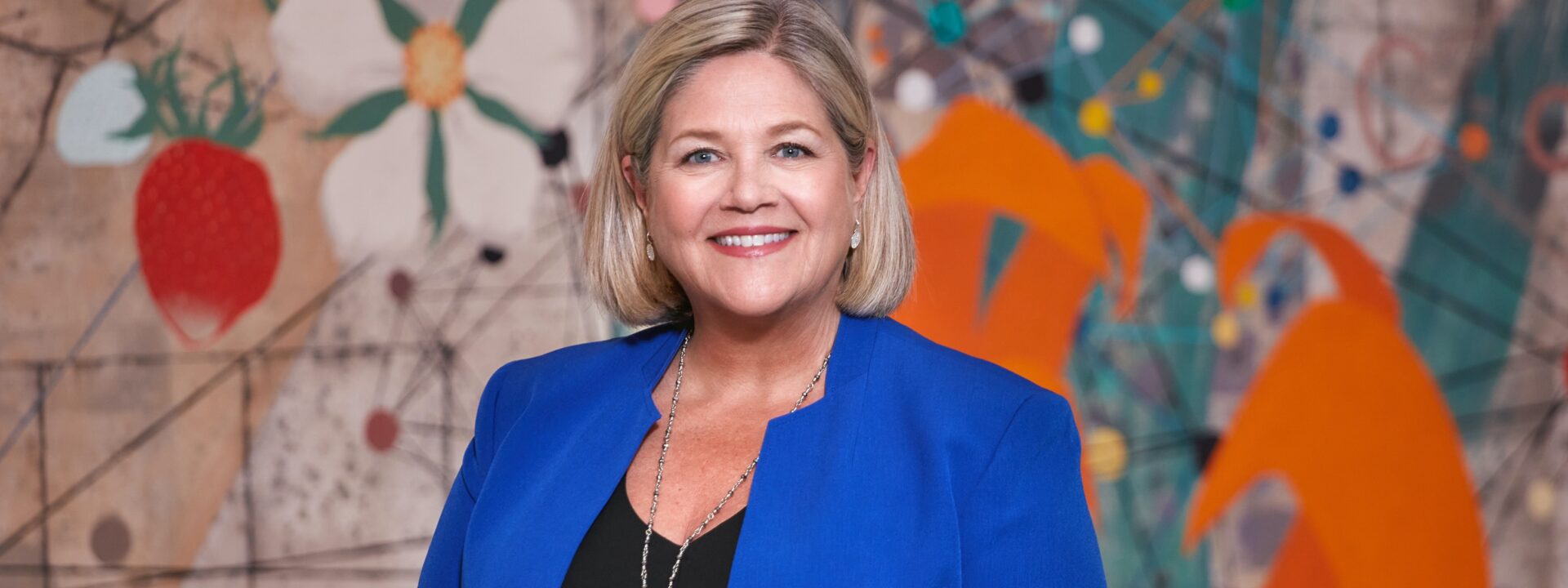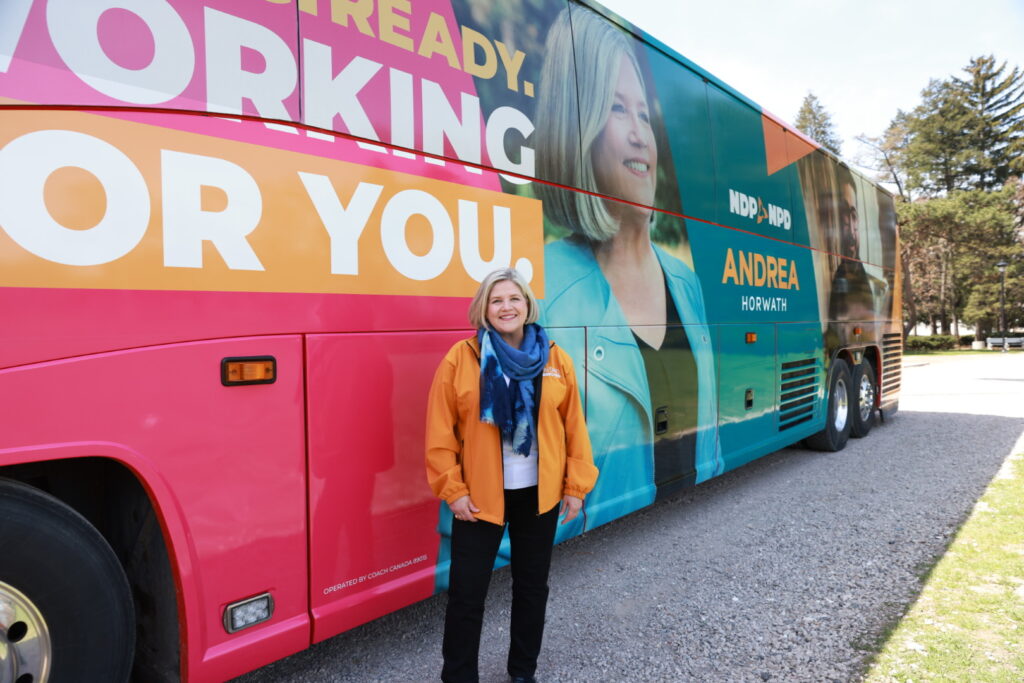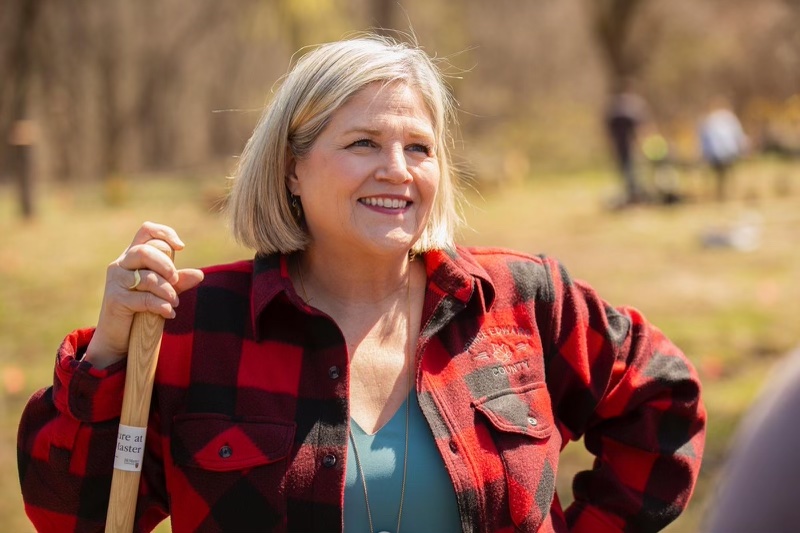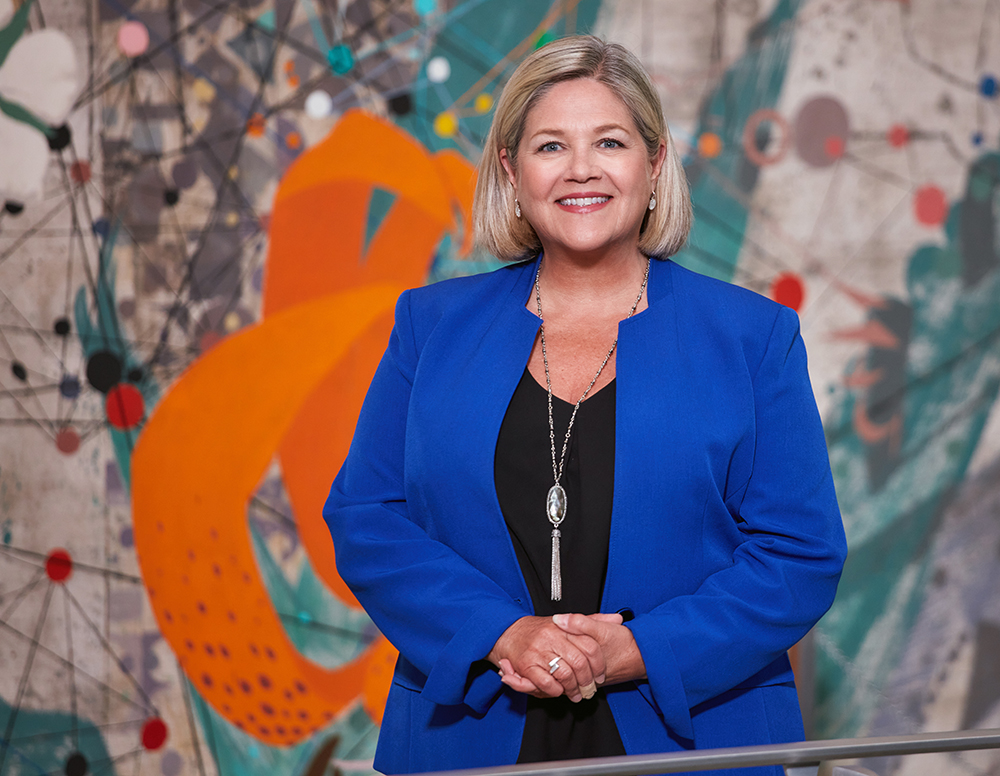Part 2 of 2023 and beyond: An interview with Mayor Andrea Horwath

In this second installment, HCM’s Jeff Martin explores key issues with Mayor Andrea Horwath, including the perceived culture of secrecy within council and the need to move toward greater transparency and cultural change at City Hall. She also elaborates on the importance of Hamilton’s farmland and agriculture sector, and the need to protect the city’s urban boundary and its vital farmland, despite the push from the Ontario government to remove hundreds of acres of land for suburban development.
You're the new mayor leading 10 new faces around the council table. I assume we're going to see a big cultural change not only at council, but throughout the city because of the positivity and the progressive thinking and the passion that comes with our new councillors, and with you as new mayor. Do you see that too, a cultural shift in how Hamilton works?
It's interesting because this came up and it's come up for some time – there needs to be a culture change. How do you create a culture change? That's really what I'm referencing, it's up to us to acknowledge and recognize that that's our job. There isn't a list of things of boxes that you tick off to create a culture change. I can't come in and say, ‘OK folks, we're now changing the culture, it was this and now it's that.’ That's not how it works. It's about respect, it's about dignity, it's about engagement, it's about transparency, it's about how we talk to each other. It’s about our behaviour. The challenge is going to be as things become tense with the budget particularly, different levels of experience and knowledge, different parts of the learning curve people are on, not giving up on the fact that we have an opportunity to show Hamiltonians that we can do things differently.

Hamilton is a green city. We have the Niagara Escarpment, the valleys, the harbour, Lake Ontario and agriculture is one of our key business sectors. In fact, Hamilton has more farmland than any other single-tier municipality in Ontario. Much, if not most, of the produce we eat today is imported from the U.S. and South America where climate change is now affecting their crops, growing season, precipitation, prices, and we see it every day – prices are skyrocketing. Our provincial government is planning to eliminate prime farmland out of the greenbelt. What can Hamilton do to protect its urban boundary and particularly our vital farmland?
This is something I think we're all concerned about, and certainly I hear it in the community. I hear it around the council chamber. I hear it from everyday folks and even from city staff. It's something that's a big concern because it's not only about us, it's about future generations as well. We took some time to go and visit some of the agricultural assets we have. And the amount of value in terms of economic activity is staggering and it's fantastic. There's just no doubt that we have an obligation to protect those lands. And it's clear the city has a plan. We put a plan together – the previous council did – on how we accommodate the growth, the residential pressure in terms of growth while still protecting our farmland, that's something that we've already accomplished.
When we look province-wide, there's some 250,000 units that are sitting, waiting to be built within existing urban areas that can accommodate a lot of the growth. Here in Hamilton, that figure is at about 34,000 (housing) units that are able to be built right now, and that's not even talking about some of the more details of the plan around the gentle intensification in neighbourhoods, duplexes, triplexes, etc. That's just units that are apparently here and ready to go. That's 11½ years of actual housing development that we've already got covered, so I think what we need to do is continue to engage the provincial government and the premier on how we try to dial this back a little bit.
We don't need to be leaping ahead into the greenfield properties, into the greenbelt at all, we don't need to be eating up farmland, what we need to be doing is growing responsibly. We can grow responsibly, responsibly in terms of environment, responsibly in terms of complete communities where we're not just slapping buildings up. It's not just a matter of units, it's a matter of communities where you have appropriate levels of parkland, where you have proper roadways and infrastructure above ground and underground, where we have libraries, you have transit, and transportation networks. All of those things create whole communities. And that's what we have to keep our eye on. It's absolutely fraught right now. But we need to find a path forward – the government of Ontario, the development community and municipalities. We're going to keep talking to the government, pushing the government a little bit, talking to the development community, saying, ‘Let's figure out a path forward.’ Mr. Ford made a commitment, and the minister of housing and his spokesperson made a commitment that they were going to work with municipalities. That somehow has gone off the rails and we need to come together to find solutions that will help us to meet our needs in terms of housing, because housing is unaffordable.
Unfortunately, there's nothing in this plan that assures the housing that gets built is actually going to be affordable. What it does do though is threaten our ability to provide some of the infrastructure with a development charge issue. When you build new subdivisions, that development should be paying for itself. Those (new) homeowners should be responsible for the new infrastructure that's going to be required – and that's what development charges do. If we get rid of them, then existing homeowners not only have paid for their share of the underground or the infrastructure costs when their neighbourhood was built or the generation before them. But now we're asking those same people to pay for the new development. It's not just a matter of the affordability of the new housing that's built, which is not guaranteed at all, but it's also about the affordability of the ongoing cost of annual taxes on homeowners – existing homeowners and new homeowners. It's not just a matter of the house or the unit that you purchase, it's also a matter of the carrying costs, which includes property taxes. This scenario the province is driving towards or is pushing us forward on doesn't make a lot of sense. It shifts responsibility for who's paying for what, and I get it that that's how it works. Business wants to do the things that are good for their bottom lines, but we are government, and we have to make sure there's balance when it comes to whose bottom line is paying for what, and how do we responsibly grow our city. It’s not well thought out and it's disappointing because the province had put together a taskforce of municipal representatives to have the conversation about how do we expedite more housing development, but that went by the wayside. I don't think it ever actually met. That's one of the things that the Association of Municipalities of Ontario is very concerned about, is that they (the province) had set up an engagement process and then didn't use it, and instead basically spoke to only one of the stakeholders – the development community.
The development community is necessary to actually build the housing, we can't forget that, but let's pull it all back and say, ‘We're in this together. It's our city, we have to build it together, we have to be proud of it. We have to make sure that it meets our needs and it doesn't have unintended consequences around our ability to pay for our water and sewer systems, our roads, to pay for not only the building, but also the upkeep over time of these assets.’ It's fairly complicated, but on the big picture level, there needs to be some real change around how this goes forward. We can't simply allow what's happening now to be the end game as it will be really, really destructive for communities. Confrontational is what we have right now.

In the past, Hamilton has been confronted by some serious and major consequential issues. There’s been a perceived culture of secrecy with council. How can you help move the City toward greater transparency as mayor?
It's something that I've committed to, And the point of the matter is people deserve to know, and so the commitment I've made is when I know, whether good or bad, you'll know. That happened recently with the Wentworth Street North/Burlington Street water and sewer pipes issue. It was brought to my attention in the early afternoon of the day and before the end of that day, we were up with the media giving all the information we had. That's the way to go. We all work together to try to move our city forward and do what's right for Hamiltonians, for our environment, and that means it takes all of us to be upfront about what's happening, good and bad. When there's something good that happens, we'll talk about that, but when something bad like that happens, something unfortunate, something problematic, we need to be upfront as quickly as possible. We're all in it together. People deserve to know that something happened, and that yes, we're on it, and it'll take us a bit of time to figure out what the impact is, what the remediation is. All of those things come after, but people need to know as quickly as possible when something happens – the good and the bad.
Summarize what you want to say to the citizens of Hamilton. You're our new mayor, what's a message you want to get out to them as we start the new year?
I'm excited about Hamilton's future. I think we have great opportunities ahead of us. I think that we're in a new phase of our city that's extremely positive. I think our economy is going to burst, we have young people, we have entrepreneurs, we have interest in technology, we have a green economy, all those are great jobs. I just think our opportunities are, we're coming into our own economically. The arts have always been fantastic – we have so much more we can do when it comes to the arts and cultural part of our city. We see what's happening with film. We know that there's a lot of great things in the arts community overall, like the performing arts. We have a great music scene that we don't take advantage of. We don't burst out and we need to do more of that.
I think all these things are great. We're all feeling this sense of energy, this sense of movement, of positivity, and it's going to take all of us to embrace that and have Hamilton actually finally come into her own as a city. So many people who have come to Hamilton, who have made Hamilton their home over the last couple of years, they're blown out of the water. I think sometimes we don't appreciate what we have. As a longtime Hamiltonian and an elected official, it’s a privilege when I go out to knock on doors in our neighbourhoods, and especially with the mayor's campaign – going out to all of the various communities, meeting all the people, meeting the small businesses, having those conversations.
The fabric of our community was just laid out for me like an amazing quilt. So amazing, and that's me, I've lived here all my life. When people come with fresh eyes, never having seen Hamilton before and start to do that exploring, as I said, it really does blow them out of the water.







